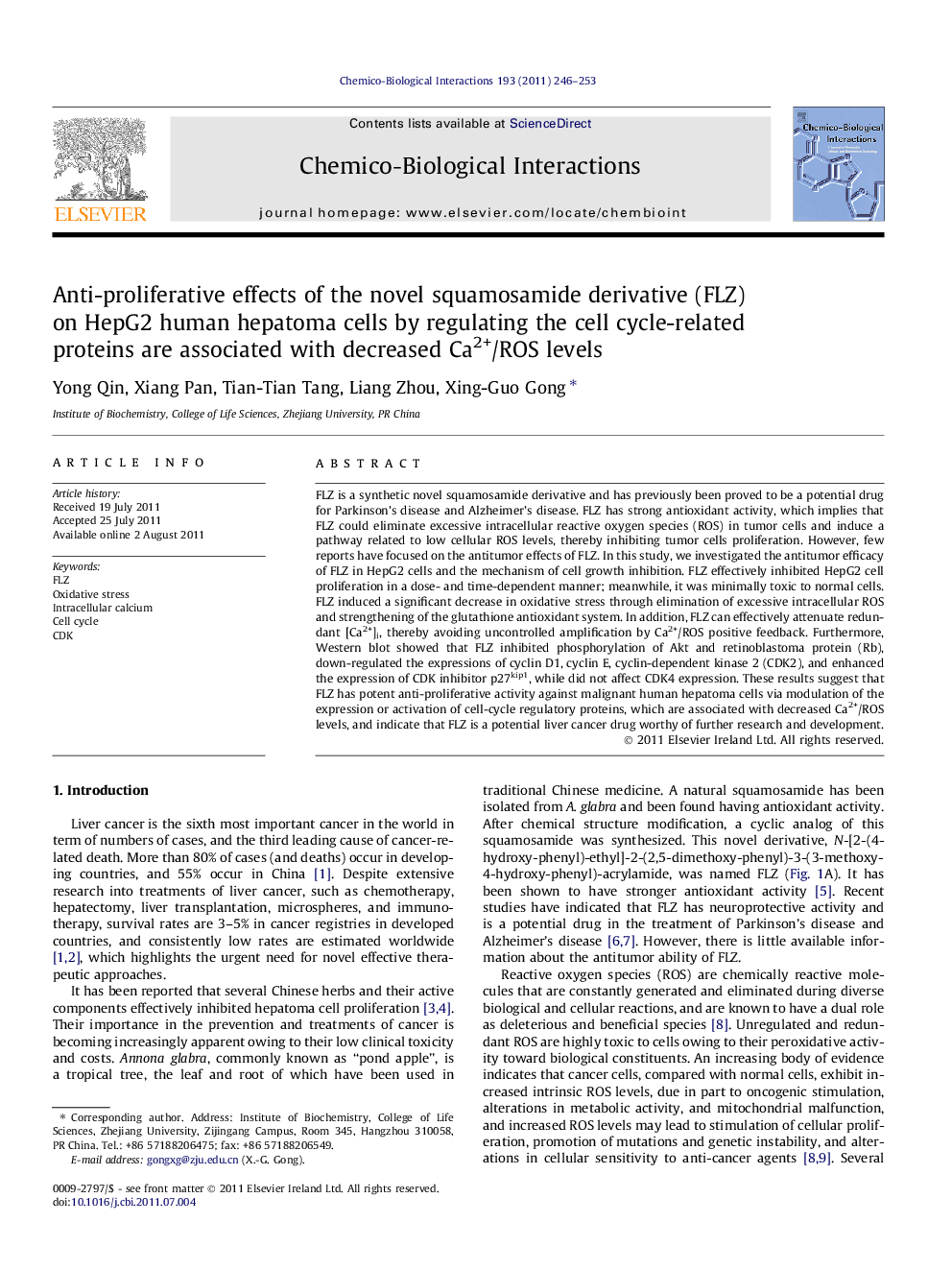| کد مقاله | کد نشریه | سال انتشار | مقاله انگلیسی | نسخه تمام متن |
|---|---|---|---|---|
| 2580914 | 1130165 | 2011 | 8 صفحه PDF | دانلود رایگان |

FLZ is a synthetic novel squamosamide derivative and has previously been proved to be a potential drug for Parkinson’s disease and Alzheimer’s disease. FLZ has strong antioxidant activity, which implies that FLZ could eliminate excessive intracellular reactive oxygen species (ROS) in tumor cells and induce a pathway related to low cellular ROS levels, thereby inhibiting tumor cells proliferation. However, few reports have focused on the antitumor effects of FLZ. In this study, we investigated the antitumor efficacy of FLZ in HepG2 cells and the mechanism of cell growth inhibition. FLZ effectively inhibited HepG2 cell proliferation in a dose- and time-dependent manner; meanwhile, it was minimally toxic to normal cells. FLZ induced a significant decrease in oxidative stress through elimination of excessive intracellular ROS and strengthening of the glutathione antioxidant system. In addition, FLZ can effectively attenuate redundant [Ca2+]i, thereby avoiding uncontrolled amplification by Ca2+/ROS positive feedback. Furthermore, Western blot showed that FLZ inhibited phosphorylation of Akt and retinoblastoma protein (Rb), down-regulated the expressions of cyclin D1, cyclin E, cyclin-dependent kinase 2 (CDK2), and enhanced the expression of CDK inhibitor p27kip1, while did not affect CDK4 expression. These results suggest that FLZ has potent anti-proliferative activity against malignant human hepatoma cells via modulation of the expression or activation of cell-cycle regulatory proteins, which are associated with decreased Ca2+/ROS levels, and indicate that FLZ is a potential liver cancer drug worthy of further research and development.
Figure optionsDownload as PowerPoint slideHighlights
► FLZ effectively inhibited HepG2 cell proliferation in a dose- and time-dependent.
► FLZ can obviously attenuate intracellular redundant [Ca2+]i and ROS.
► FLZ modulated the expression or activation of cell-cycle regulatory proteins.
► FLZ retarded the cell cycle at G1 phase.
Journal: Chemico-Biological Interactions - Volume 193, Issue 3, 30 September 2011, Pages 246–253